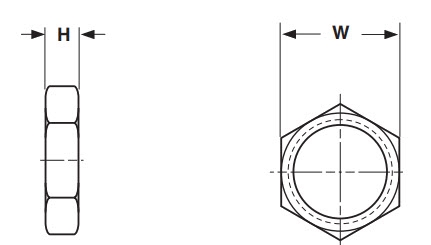What are panel nuts?
Panel nuts are specialized nuts designed to provide a secure fastening point for components on panels, sheet metal, or thin materials. They often have a larger flange or base that helps distribute the load and prevent damage to the surface.
What are brass nuts used for?
Brass nuts are commonly used in various applications, including electrical, plumbing, automotive, and general engineering. They are valued for their corrosion resistance, electrical conductivity, and aesthetic appeal. Brass nuts are often used in environments where exposure to moisture or chemicals is a concern.
What is the size of a brass nut?
The size of a brass nut can vary depending on the specific application and the thread standard being used. Common sizes range from small diameters like M3 or #4 to larger sizes such as M20 or 3/4". The size is typically specified by the thread diameter and pitch.
How does a panel nut differ from a regular nut?
Panel nuts differ from regular nuts in their design and intended use. Unlike regular nuts, panel nuts typically have a larger, wider flange or base that provides stability and prevents the nut from pulling through a panel or sheet metal. This design feature allows for easy installation and secure fastening without the need for additional washers.
What is a brass hex nut?
A brass hex nut is a type of nut with six flat sides arranged in a hexagonal shape. This design allows for easy tightening or loosening using a wrench or a socket. Brass hex nuts are commonly used in applications where a secure and durable fastening solution is required, along with the desirable properties of brass, such as corrosion resistance and electrical conductivity.

